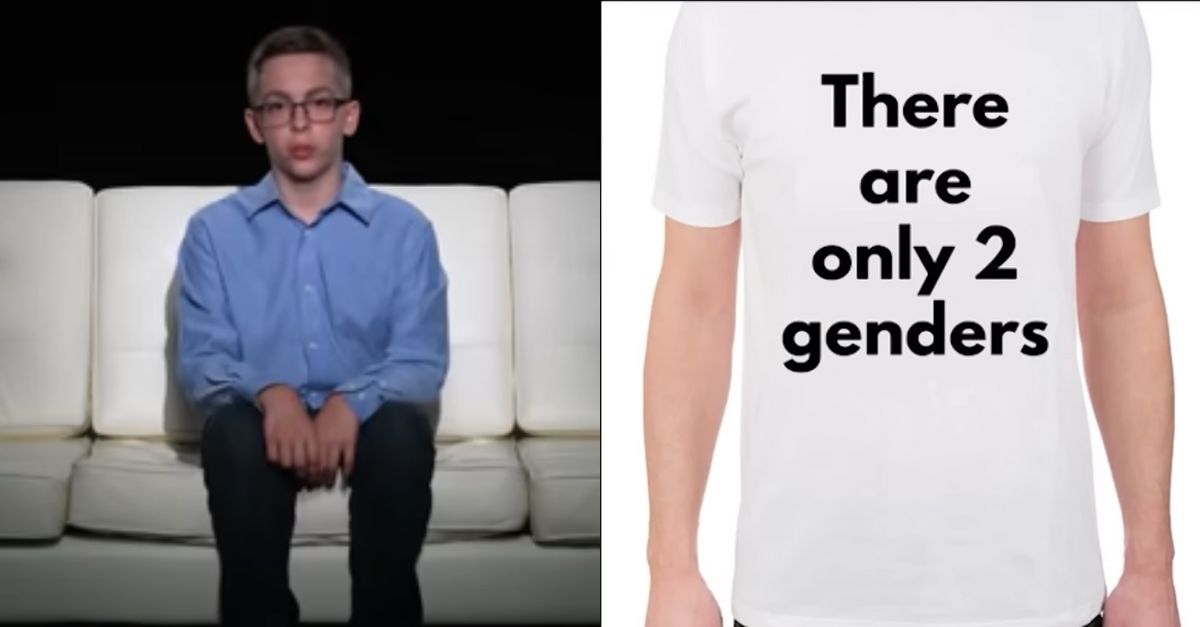Share this @internewscast.com
FILE – Justice Samuel Alito, along with other Supreme Court justices, is seen in a group portrait taken on October 7, 2022, at the Supreme Court building in Washington. On September 8, 2023, Alito dismissed Senate Democrats’ demands for him to recuse himself from an upcoming Supreme Court case, citing his interactions with one of the involved lawyers, highlighting ongoing tensions regarding judicial ethics (AP Photo/J. Scott Applewhite, File).
Justice Samuel Alito strongly defended the expression of “controversial, offensive, or disfavored views” in a case concerning a Massachusetts middle school student who faced punishment for wearing a T-shirt with political messages.
In dissenting from the decision not to review the case of Morrison v. Town of Middleborough, the justice criticized his fellow judges for letting “confusion” persist about correctly applying established First Amendment case law. The full dissent can be accessed here.
In the case, Liam Morrison, a 7th grader at the time, protested his school’s LGBTQ Pride day by wearing a T-shirt reading “There Are Only Two Genders” to class and was promptly sent home. In the ensuing days, more protesters and counterprotesters joined the dispute — but picketed outside the school grounds. Morrison, back at school, wore the T-shirt with the word “CENSORED” taped over “Only Two” and was again punished by administrators.
The student sued on First Amendment grounds and lost at the district and appellate court levels. In rejecting his petition, the U.S. Supreme Court leaves in place the 1st U.S. Circuit’s ruling in the school’s favor.
Love true crime? Sign up for our newsletter, The Law&Crime Docket, to get the latest real-life crime stories delivered right to your inbox.
Alito casts the court’s decision as an affront to freedom of speech and a missed opportunity to reiterate and clarify First Amendment doctrine as it applies to the rights of public school students.
In the dispute, all sides agree the controlling case here is the landmark 1968 opinion in Tinker v. Des Moines — a case involving a group of anti-Vietnam War students who wore black protest armbands to their public school and were sanctioned. The high court, however, rebuked the school district and affirmed the notion that free speech rights are not relinquished when students enter schools — but allowed administrators some degree of latitude to censor student speech that “materially and substantially interferes” with instruction.
The major issue is whether or not Morrison’s treatment by Nichols Middle School (NMS) was in line with the Tinker framework. Alito says the school — and the reviewing courts — clearly went beyond.
“The First Circuit held that the school did not violate L.M.’s free-speech rights,” the dissent reads. “It held that the general prohibition against viewpoint-based censorship does not apply to public schools. And it employed a vague, permissive, and jargon-laden rule that departed from the standard this Court adopted in Tinker v. Des Moines.”
To hear Alito tell it, Morrison was attempting to “register his dissent and start a dialogue on the topic” of gender identity — a viewpoint the school in question allegedly enforces.

Left: Liam Morrison is pictured (Alliance Defending Freedom). Right: a shirt like the one Morrison wore to school is shown (CBS News).
“NMS promotes the view that gender is a fluid construct and that a person’s self-defined identity — not biological sex — determines whether that person is male, female, or something else,” Alito writes.
Morrison, of course, rejects that view but is not the only student who has worn a T-shirt expressing a position on the basic topic.
After the suspension, the student’s father called to complain and pointed out that the school itself, in a social media post, seemingly endorsed a position on gender identity by sharing an image of a student wearing a T-shirt reading: “HE SHE THEY IT’S ALL OKAY.”
The school district’s superintendent countered that Morrison’s T-shirt violated the dress code by “target[ing] students of a protected class; namely in the area of gender identity.”
Here, Alito sees hypocrisy and danger — that the government is restricting expression “because of its message.” He says “these freedom-of-speech harms become ‘all the more blatant’ when the government ‘targets not subject matter, but particular views taken by speakers on a subject.’” And, the justice notes, there is not “a carveout from this principle for controversial, offensive, or disfavored views.”
The district court ruled against Morrison by finding he infringed on “the rights of others.” Later, the appeals court found his T-shirt caused a material disruption because it “demean[ed] characteristics of personal identity, such as race, sex, religion, or sexual orientation” that “other students at the school share.”
Alito rejects this understanding of Tinker as “a novel and permissive test that distorts the ‘material disruption’ rule beyond recognition.”
“The First Circuit identified a special category of speech, i.e., speech that can be interpreted as demeaning a deeply rooted characteristic of personal identity,” Alito explains. “And if student speech, as interpreted by the school, falls into this category, the school may ban that speech if the school ‘reasonably forecast[s]’ that it may have a ‘serious negative psychological impact on students with the demeaned characteristic.’ This rule cannot be squared with Tinker.”
In Alito’s view, Morrison and his T-shirt are akin to the Tinker students and their black armbands — because the school was targeting disfavored speech that upset some students while allowing majoritarian beliefs on hot topics without sanction.
From the dissent, at length:
NMS had no right to censor L.M. Like the black armbands in Tinker, L. M.’s shirts were a “silent, passive expression of opinion, unaccompanied by any disorder or disturbance on the part of petitione[r].” And just as in Tinker, some of L.M.’s classmates found his speech upsetting. Feeling upset, however, is an unavoidable part of living in our “often disputatious” society, and Tinker made abundantly clear that the “mere desire to avoid the discomfort and unpleasantness that always accompany an unpopular viewpoint” is no reason to thwart a student’s speech.
…
The black armbands in that case also involved an emotionally charged topic, and the students in the Des Moines public schools were not somehow immune from those intense feelings.
The school, for its part, worried Morrison’s T-shirt might lead to a “standoff” between students who support gender identity and those who oppose it. Alito rubbishes this argument as far divorced from Tinker — where the high court rejected evidence of “hostile remarks” between students and one math class being “wrecked” by discussion of the Vietnam War as enough of a disruption to merit censorship.
“Tinker’s ‘material disruption’ standard is demanding by design,” Alito goes on. “That is because free speech is the rule, not the exception. The First Circuit’s test flips that principle on its head.”
In its ruling, the First Circuit made some hay out of the fact that Morrison’s T-shirt was worn to middle school where students are between 10 and 14 years old — arguing that the younger nature of the students implicated should give administrators more leeway in controlling student speech. Again, Alito sees a break from Tinker — where the lead plaintiff, Mary Beth Tinker, was a 13-year-old.
Here, Alito takes the opportunity to plead for even greater free speech protections in the name of ideological diversity.
“If a school sees fit to instruct students of a certain age on a social issue like LGBTQ+ rights or gender identity, then the school must tolerate dissenting student speech on those issues,” the justice writes. “If anything, viewpoint discrimination in the lower grades is more objectionable because young children are more impressionable and thus more susceptible to indoctrination.”
In a concurrence, Justice Clarence Thomas joins Alito.
While Thomas makes sure to remind everyone he rejects Tinker itself — over general opposition to free speech for students in grade school in favor of the in loco parentis doctrine — the justice says the lower court decision “flouts Tinker and its progeny” because Morrison and his T-shirt “plainly did not create a ‘materia[l] disrupt[ion].’”
















